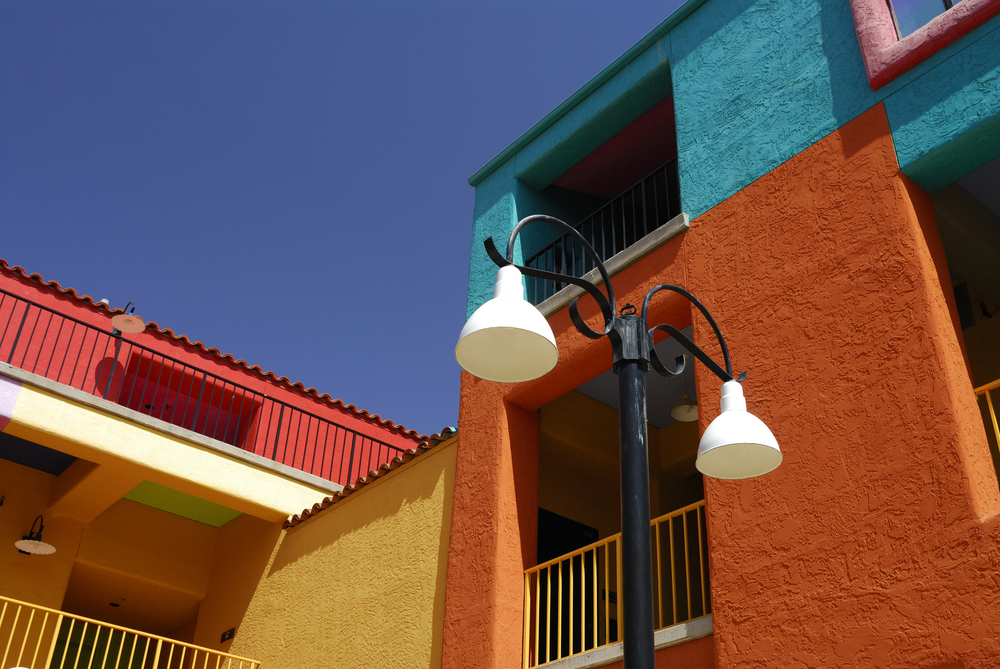Tucson Arizona Home Health: Common Terms, How to pay for Home Health, Licensing and Questions to ask
Tucson is a beautiful location for those seeking senior living. Nestled in the Sonoran Desert of Southern Arizona, Tucson is the second-largest city in the state, known for its stunning natural beauty, rich Native and Mexican American heritage, and bustling downtown area. Covering a large geographic area, this city has many distinct neighborhoods including a historical district. Located in the Sonoran Desert, the city is surrounded by stunning vistas that include towering cacti, rugged mountains, and a range of unique flora and fauna.

- Tucson Arizona Home Health: Common Terms, How to pay for Home Health, Licensing and Questions to ask
- About Home Health in Tucson
- Considerations when looking for care in Tucson
- Cities Near Tucson
- Pricing and How to Pay for Home Health
- Local Hospital and Healthcare Providers
- How to pay for Home Health and available coverage
- Questions to ask when looking for Home Health
- Resources and Links – Arizona
- Search other areas for Home Health
About Home Health in Tucson
Arizona offers some of the most picturesque landscapes in all of the country. The reasonable cost of living makes it an ideal place for retirees and all seniors alike. Because of the state’s 300 days of beautiful sunshine a year and a growing economy it is an ideal place for seniors. There are 7.5 million residents of Arizona, 18% of which are 65 years and older. As a result of aging, it is common for some people to require care at some point. Home health services are unique in comparison with other forms of care. These services are generally provided so the patient may be in their home while receiving care, as opposed to a long-term facility like a nursing home. The individual’s treatment plan (as assigned by the doctor) may include physical and occupational therapy, the monitoring of recovery, injections or wound care. Upon completion of the rehabilitation, the patient may resume normal function around the house after they’ve recovered. Home health services are generally short-term (temporary), depending on the doctor’s orders. Not all home health services require around the clock care. However, there are situations in which the caregivers continue the home health care beyond the doctor’s order. Most commonly, your loved one’s doctor will prescribe a home healthcare agency. Being serviced by the agency your physician has chosen is not set in stone and you may choose to use a different home health agency if you choose. If you know someone, a friend or family member who has received home health care and they were satisfied with their trained professional team, you can inquire into that agency.
Licensing and certifications for Home health agencies must be in compliance with Arizona state and local standards. A home health director must ensure that nursing services are provided by a registered nurse or practical nurse, according to the policies and procedures in place. The home health director will ensure the patient’s condition and the provided services are documented in the patient’s medical record – and verbal orders for care from the patient’s physician or registered nurse practitioner.
Medicare Part B and the Hospital Insurance Act cover home health services. In order to receive Medicaid and Medicare, agencies must meet certain standards set out by the Centers for Medicare and Medicaid Services (CMS). A physician and qualified nurses oversee the skilled nurses and the other home health professionals.
Considerations when looking for care in Tucson
There are 543,242 people in Tucson and nearly 30 home health agencies to choose from.
The hottest month of the year in Tucson is July, with an average high of 100°F and low of 77°F. The cool season lasts from November 22 to February 28, with an average daily high temperature below 72°F. The coldest month of the year in Tucson is December, with an average low of 43°F and high of 66°F.
Home Health Communities near Tucson, Arizona
Hacienda Home Health Care Inc
Tucson, Arizona 85712
Enhabit Home Health
Tucson, Arizona 85712
At Home Healthcare Northwest
Tucson, Arizona 85705
Aventas Home Health Llc
Tucson, Arizona 85715
Dependable Nurses, Inc
Tucson, Arizona 85715
Patient Care Advocates, Llc
Tucson, Arizona 85719
Arista Home Health
Tucson, Arizona 85712
Banner Home Care
Tucson, Arizona 85704
Amedisys Home Health Care
Tucson, Arizona 85718
Maxim Healthcare Services, Inc.
Tucson, Arizona 85711
Cities Near Tucson
- Three Points – 26 miles west of Tucson
- Summit – 15 miles south of Tucson
- Tanque Verde – 14 miles east of Tucson
- Catalina – 18 miles north of Tucson
Pricing and How to Pay for Home Health
Home health is usually covered by Medicare. Generally plans are set up to be reimbursed by Medicare or other insurance when applicable.
If you or a loved one is receiving home health in Arizona and does not have coverage through Medicare the typical cost for a Health Aide is $21 per hour. If we look across the state, people pay between $17 and $31 per hour for a Home Health Aide. Home health aides are going to be less expensive than therapists and certified nurses. A physical therapist averages $42 per hour, however, the services may cost anywhere between $40 to $300 dollars per hour depending on the required level of treatment. You will want to speak with your agency about the costs for higher levels of care professionals.
How to pay for Home Health and available coverage

Medicare:
Generally Medicare reimburses the cost of Home health services. Medicare typically covers your loved one when recovering from an illness or an accident or a surgery.
*Medicare covers the specific ailment. When treatment is completed Medicare coverage stops.
Medicare is not a long-term care solution.
Medicaid:
Medicaid programs are put in place on a state-by-state basis. Each state will have their own regulations regarding the coverage of care. Some individuals at a certain low-income level may qualify for Medicaid Home and Community Based Service Waivers.
Veteran Aid and Attendance:
This benefit is available to some military veterans or surviving spouses.
- A veteran may qualify for as much as $2,050 each month.
- A veteran with a sick spouse may be eligible for $1,600 per month.
- If a veteran has passed, their surviving spouse can qualify for $1,300 per month.
Private Insurance:
- Most health insurance companies typically cover some services for acute medical needs.
- Do be aware, long-term coverage vary by plan. Not all long-term insurance will assist with home health services as the needs of the person tend to be temporary.
Private pay:
Families which can afford to do so may pay for care with private funds. Private pay can be a combination of retirement funds, personal savings, pension payments and family members may contribute funds toward a loved one’s care as well.
Questions to ask when looking for Home Health
- How long has the agency been serving this community?
- Does the agency have any printed brochures describing the services it offers and how much they cost?
- Is the agency an approved Medicare provider?
- Is the agency currently licensed to practice (if required in the state where you live)?
- Does a national accrediting body certify the quality of care?
- Does the agency offer seniors a “Patients’ Bill of Rights” that describes the rights and responsibilities of both the agency and the senior being cared for?
- Is there a care plan in place that outline the patient’s course of treatment, describing the specific tasks to be performed by each caregiver?
- How closely do supervisors oversee care to ensure quality?
- Will agency caregivers keep family members informed about the kind of care their loved one is getting?
- Are agency staff members available around the clock, seven days a week, if necessary?
- Does the agency have a nursing supervisor available to provide on-call assistance 24 hours a day?
- How does the agency ensure patient confidentiality?
- How are agency caregivers hired and trained?
- What is the procedure for resolving problems when they occur?
- How does the agency handle billing?
- Is there a sliding fee schedule based on ability to pay, and is financial assistance available to pay for services?
- Will the agency provide a list of references for its caregivers?
- Who does the agency call if the home health care worker cannot come when scheduled?
- What type of employee screening is done?
Local Hospital and Healthcare Providers
St. Mary’s Hospital
1601 W St Marys Rd
St. Joseph’s Hospital
350 N Wilmot Rd
Cornerstone Specialty Hospitals Southeast Arizona
7220 E Rosewood St · In Gateway Center
The University of Arizona Medical Center
535 N Wilmot Rd
Resources and Links – Arizona
Area Agency on Aging Region One– Serves adults 60 and older, family caregivers of older adults, adults with disabilities and long-term care needs, adults diagnosed with HIV/AIDS, and victims of late-life domestic violence, elder abuse, and sexual assault.
Inter Tribal Council of Arizona, Inc., Area Agency on Aging – American Indian elders and those that are Title III, VI and VII eligible in Tribal Communities in Arizona. We work with 21 tribes in Arizona.
Adult Protective Services – Arizona Adult Protective Services (APS) is a program within the Division of Aging and Adult Services (DAAS) responsible for investigating allegations of abuse, exploitation and neglect of vulnerable adults.
State Health Insurance Assistance Program (SHIP)– SHIP provides health and long-term care insurance information to Medicare eligible Arizonans, their families and caregivers. The purpose of this program is to ensure Arizonans receive the benefits to which they are entitled.
Office of Arizona State Long-Term Care Ombudsman Program – The LTCOP will make every reasonable effort to assist, advocate, and intervene on behalf of the resident. When investigating complaints, the program will respect the resident, maintain their confidentiality, and will focus complaint resolution on the resident’s wishes
Eldercare Locator This is a great resource to search for specific care in specific counties and cities. This database is a nationwide resource that connects older Americans and their caregivers with trustworthy local support resources. Connect with services such as meals, home care or transportation, or a caregiver education or respite from caregiving responsibilities. The Eldercare Locator is a public service of the Administration on Aging (AoA), an agency of the U.S. Administration for Community Living.
Medicare provides a search feature to find & compare providers near you, most senior housing and care providers are included on CareAvailability.com. Find & compare plans in your area. Determine if you qualify for premium savings
Medicaid offers information on how to apply for Medicaid, eligibility criteria, links to local state offices, and additional resources
The Alzheimer’s Association is the leading voluntary health organization in Alzheimer’s care, support, and research. Whether you are living with Alzheimer’s or caring for someone with the disease, information and resources are available.
